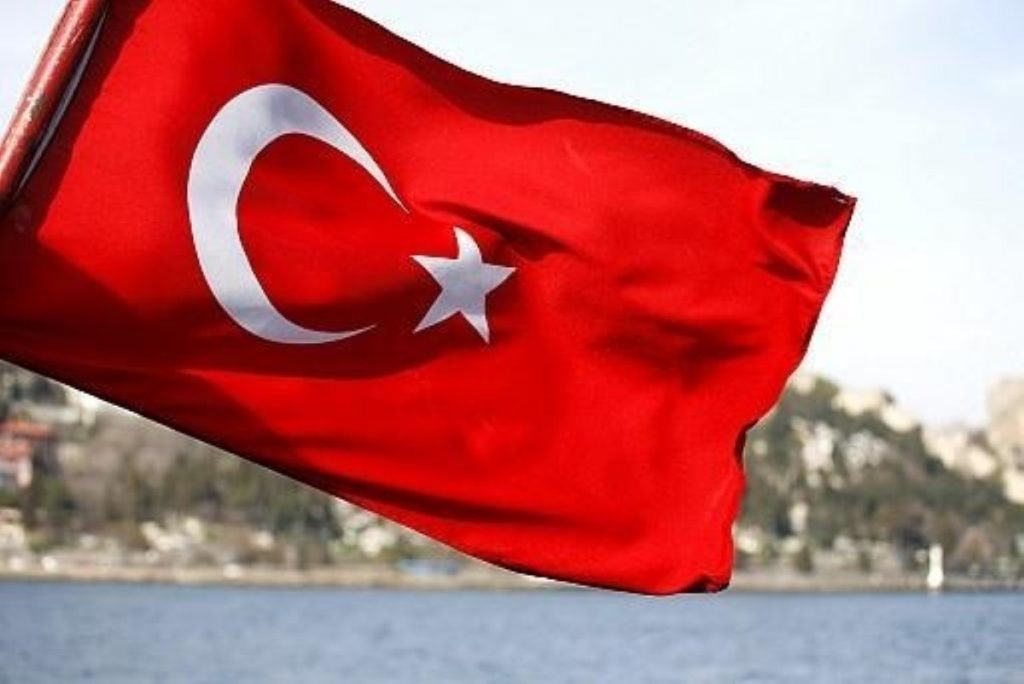Analysis: Turkey at new crossroads
As Turkish president Abdullah Gul begins a three-day state visit to the UK, the country traditionally at the crossroads between east and west finds itself facing an ancient dilemma once again.
By Matthew Champion
Amid the carnage of the crisis that has unfolded throughout the eurozone since early 2010, the significance of Turkey's proposed accession to the EU has largely fallen by the wayside.
The majority-Muslim but wholly secular nation was a founder member of the Council of Europe in 1949 but was not granted official EU candidate status until 1999, while formal negotiations did not begin for a further six years. Since then, two-thirds of 35 so-called negotiating chapters remain unopened.


Even before the eurozone crisis struck, the resolve of most member nations, led by Germany and France but typified by Austria, had hardened against Turkey. Nicolas Sarkozy currently regards enlargement as "impossible", while Angela Merkel favours a "privileged partnership" rather than full membership.
Some of the stumbling blocks are of Ankara's own provision, foremost among them Cyprus. Turkey still occupies the northern half of the island and plans a symbolic boycott with the EU when Cyprus assumes the rotating six-month presidency next year.
Despite these obstacles, President Gul had presaged his UK trip, the first state visit by a Turkish leader for 23 years, by reaffirming his country's EU vision in a flurry of interviews to UK papers and broadcasters.
"Consider the potential that Turkey has: Turkey's position, her assets, the value she can add in terms of energy resources, her population, the dynamism she can bring into Europe, and also the growth that she can bring, with Turkey being the engine of this growth," he told the Daily Telegraph.
"We see the confusion, but we believe this is going to be a temporary situation within the European Union. And we approach the negotiations with a strategic vision, and are very determined."
In an address to the CBI yesterday, President Gul championed Turkish credentials, which include 8.2 per cent GDP growth in 2010 due to strong exports, a fifth of which go to Germany, the UK, Italy and France.
The timing of the UK visit is incredibly significant, albeit serendipitous. In one of his first overseas speeches as prime minister last year, David Cameron told Turkish MPs in Ankara that they had no greater friend in their bid for EU membership than Britain.
What all the positions above reflect is just how difficult politicians find it to go against their own narratives. The Republic of Turkey has since its founding in 1923 seen Europeanisation as its raison d'être. EU accession, if finally realised, would in many ways represent the culmination of the political path it was set on by its founder Mustafa Kemal Ataturk. Central European opposition to Turkish integration can be rooted further back still, arguably to the Siege of Vienna.
The point is that rather than treat the eurozone crisis as an opportunity for re-evaluation, leaders in Ankara and Brussels are instead entrenching their long-held ambitions and suspicions; and ultimately this will be to the latter's detriment and not the former.
In a largely overlooked speech on the eve of the president's voyage, Turkey's ambassador to the EU between 2005 and 2009 said accession no longer supported Turkish interests.
Volkan Bozkir, now chairman of the Turkish parliament's foreign affairs committee, said in Ankara: "The EU dream has come to an end for the world. There is a paradigm shift. The EU is no longer the same union that provided comfort, prosperity and wealth to its citizens as in the past. It no longer generates visionary ideas such as Schengen or the common agricultural policy.
"Greece, Portugal, Spain – the EU has a hard time supporting these countries in the economic crisis. It is not able any more to help its members recover from a crisis."
Bozkir's damning indictment of the EU laid the blame for the current crisis on consensus-based decision-making in a bloc made up of states with widely differing economies; in effect the entire essence of the EU project.
Continued opposition to the Turkish dream of accession from Germany and France betrays not only remarkably blinkered economic leadership but also political motivation.
President Gul has also used the days leading up to his state visit to confirm Turkey's definitive loss of trust in neighbouring Syria, which for the past year has been brutally repressing a pro-reform movement in which up to 3,500 people are thought to have died. On Iran as well, the Turkish president represents a third way of mediation, especially with regard to Tehran's nuclear programme.
Turkey's leadership has spoken in the past year of its pride as acting as a beacon for pro-democracy protests across northern Africa and the Middle East. In the president's own words, Turkey is now a source of inspiration to many of these countries.
In championing Turkish accession, the UK government – particularly Cameron – may appear to be going against the grain and challenging the central narrative, but UK-Turkish relations have always been an easy sell, while the prime minister has forged a career out of telling people what they want to hear.
Turkey's president may not publicly admit it, but his country is at a crossroads. The EU's own crossroads should not be used as an excuse to ignore the implications for which path Turkey takes.

